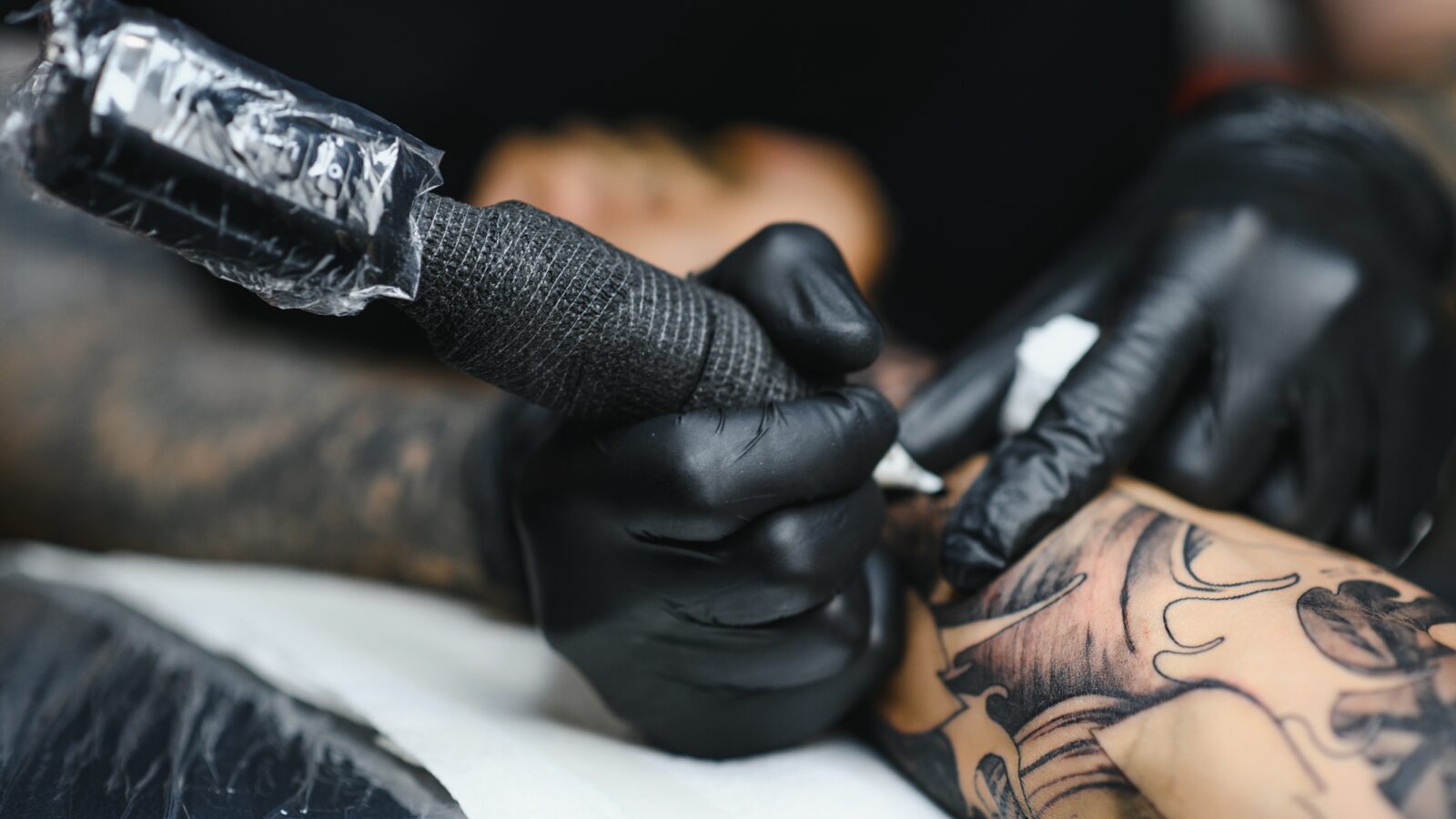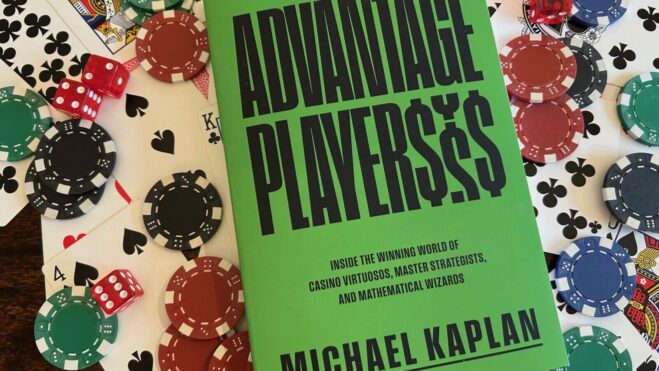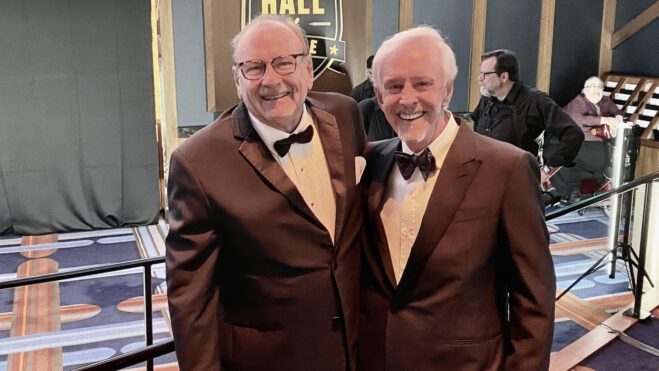Schuetz: Tell Me Again Why I Need To Describe My Scars And Tattoos To Get A Gaming License?
There must be better ways than this to determine if I’m a gangbanger looking to get into gambling
6 min

“Fall seven times, stand up eight.”
— Japanese proverb
This is my fourth attempt to address this topic. I have twice published on it in the gaming space and once in a law journal. I suspect I’m a glutton for punishment, but I’m going to continue pressing forward, for, who knows — even a blind squirrel finds an occasional acorn, as they say.

A considerable amount of time has passed since I initiated these efforts. With the rapid growth in gaming, however, many regulators have not yet had the opportunity to completely disregard my suggestions. Here is their opportunity.
The topic concerns the use of the Multi-Jurisdiction Personal History Form in gaming licensing. This is the foundational document of the licensing process in many gaming jurisdictions worldwide today. I encourage the reader to click on this document to get a flavor of its depth and complexity. (This link is to the form on the website of the Pennsylvania Gaming Control Board, but it can be found in many different jurisdictions throughout the world.)
This document was developed by the International Association of Gaming Regulators (IAGR) and has been a valuable addition to the overall licensing process. The IAGR should be applauded for its efforts.
The gaming licensing process for individuals originated from the Nevada experience with regulated gaming. As casinos began developing in the Las Vegas area, in particular, it was discovered that many of the people operating casinos had learned the business in other places. Unfortunately, gaming was illegal in those other places, and operators often resorted to bribery of law enforcement personnel, judges, and politicians to remain open. They were also not accustomed to paying taxes. In essence, they were members of organized crime.
This presented an image problem for Nevada as these people became associated with the casinos in the state, especially given that the federal government was making some loud noises about shutting down the industry because of the bad people associated with it. Nevada responded to this threat by developing a regulatory moat, if you will, to protect the industry.
Well-intentioned intervention
A critical component of this regulatory intervention was ensuring that the participants in the industry were suitable. This resulted in background investigations, which began with the individual completing an application.
These applications focused a great deal of energy on the life of the individual, their family, any skirmishes with the law or the courts, and the applicant’s work history. Over time, they became increasingly focused on the finances surrounding the individual. In essence, the emphasis shifted more toward following the money. Forensic accountants have become increasingly important compared to standard police-oriented investigators — that is, their investigative skills are more relevant to modern times and crimes. Both the individual’s story and his financial reality are of critical importance to the regulator, however.
As casino gambling began to spread across the United States, these new jurisdictions developed their own application processes. Through the continued expansion of gaming across the U.S., many individuals were affiliated with gaming operations in multiple states. This implied a reality of having different applications for each state. This did not make sense.
During my career, I have filed gaming applications in over 120 different jurisdictions — most before the adoption of the multi-jurisdictional form. I can assure you that having to deal with applications that varied in each jurisdiction was a complete pain.
It became clear that efforts needed to be expended toward harmonizing the different applications. A group from the IAGR undertook this task, and thus the multi-jurisdictional application was born.
What was interesting about this experience was that the final product was longer than any of the individual applications it replaced. It appears that the group found it easier to keep things than dismiss them when looking at the old individual jurisdictional applications. I would guess this is common in many group processes.
Where I have taken issue with the multi-jurisdictional personal history form is in one small section. Within the application is the following question:
Do you have any scars, tattoos, or other distinguishing marks and/or characteristics? If so, please describe.
Furthermore, immediately following this question in a bold and larger font is the statement:
IMPORTANT. FAILURE TO ANSWER ANY QUESTION ON THIS FORM COMPLETELY AND TRUTHFULLY WILL RESULT IN DENIAL OF YOUR APPLICATION.
The question, as I read it, asks for scars and tattoos, which is reasonably straightforward. Moreover, it requests other distinguishing marks, which I assume could be a birthmark, a gigantic mole on the forehead, a congenital anomaly, or some such thing.
The listing of characteristics threw me for a loop, however. If one ventures into a legal dictionary, one finds that a characteristic can be a great many things, up to and including physical attributes and behavioral traits.
I have always wanted my lawyers to allow me to list my rapier-like wit, my handsome profile, my extraordinary intelligence, and on and on. They have never allowed this, thereby denying the regulatory entity the opportunity to be fully informed as to who they are dealing with. I may also be in violation of the provision of not answering any question “completely and truthfully,” by not allowing the regulators to understand my many behavioral and physical talents.
Does emotional scarring count?
The origin of the questions on scars and tattoos is a throwback to law enforcement. In the commission of many crimes, such as involving a weapon or in physical and sexual assaults, the victim is potentially traumatized by the experience. This can affect their recollection of the events. They may overlook or fail to be able to recall such attributes as hair color and other common descriptors. They may, however, recall a scar or tattoo. By questioning the victim about such markings, they may gather important evidence regarding a crime.
It is also the case that often tattoos may be indicative of gang affiliation.
Since I started discussing this topic many years ago, I have asked somewhere in the neighborhood of 25 regulators as to when a scar or tattoo had a material impact on a licensing decision. According to my inquiries, the number of such instances is zero. I have also requested such insight from the audiences at different panels I have participated in at conferences. This is also zero. I have also tested several AI environments to inquire about the relevance of a scar or tattoo in a denial of a gaming license. There are no documented cases.
That seems significant.
I also believe that the people filing license applications are not honest here. I would bet that we would find that most men do not declare a circumcision if they have been so scarred, understanding that about 90% are so scarred in the white population of U.S. males. I also doubt that men who have had a vasectomy have declared having a vasectomy scar.
And if I am right, the reason they have not declared it is that it would be a stupid thing to declare on a gaming application. It is information that is totally irrelevant to the process. (Can you imagine a regulator dropping into an executive’s office and requesting that they drop trou to facilitate a compliance check for a circumcision?)
I also cannot imagine why regulators would want to know if a woman had a scar from a breast enhancement or reduction, and I doubt most women would list it. A scar from a Caesarean section would also be a stupid bit of information to collect. Yet, remember the warning listed on the application about answering every question truthfully or you will have your ability to earn a living in the industry taken away.
My point is that collecting scar and tattoo information in the U.S. is a fool’s errand. Most importantly, state government databases should not contain highly personal medical information of individuals, especially when it is irrelevant.
Moreover, the questions should not be so ill-advised as to cause the applicant to respond inappropriately. This depreciates respect for the process and the institution.
Regarding tattoos, if your regulators cannot figure out that a person was a white supremacist or gangbanger without having a list of their tattoos … well, your investigators are not too sharp.
The solution is quite simple. A state will often have a supplemental attachment to the multi-jurisdictional form that requests additional information. Develop a supplement that also states that the applicant need not answer the question regarding scars and tattoos.
I will now begin thinking of my fifth rendition of this article, which you can all look forward to seeing in three or four years after everyone has ignored this one.
—
Richard Schuetz entered the gaming industry working nights as a blackjack and dice dealer while attending college and has since served in many capacities within the industry, including operations, finance, and marketing. He has held senior executive positions up to and including CEO in jurisdictions across the United States, including the gaming markets of Las Vegas, Atlantic City, Reno/Tahoe, Laughlin, Minnesota, Mississippi, and Louisiana. In addition, he has consulted and taught around the globe and served as a member of the California Gambling Control Commission and executive director of the Bermuda Casino Gaming Commission. He also publishes extensively on gaming, gaming regulation, diversity, and gaming history. Schuetz is the CEO of American Bettors’ Voice, a non-profit organization dedicated to giving sports bettors a seat at the table.






